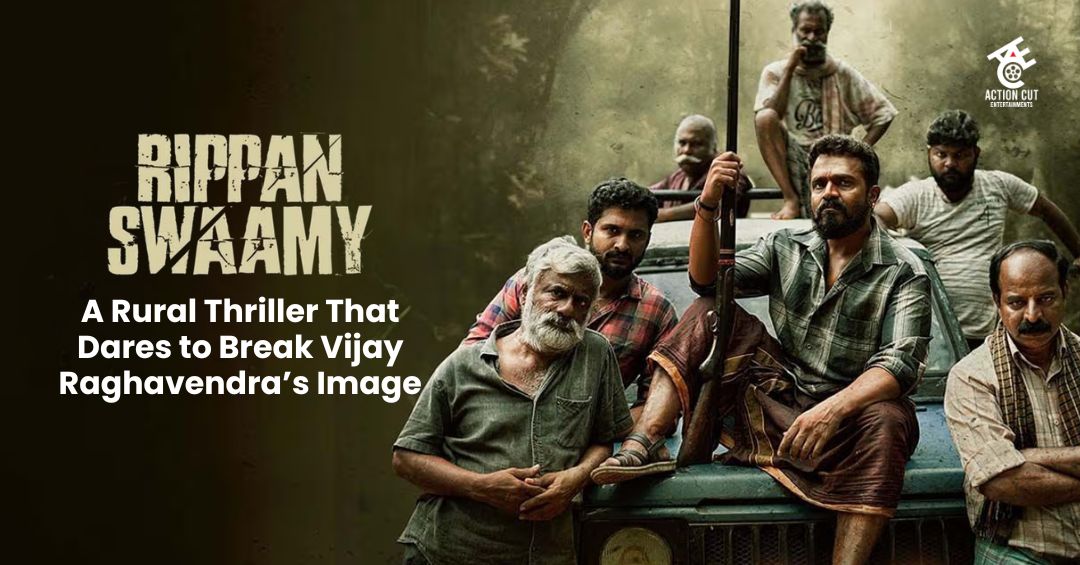Cinema set in rural Karnataka often leans on folklore, raw emotions, and rugged landscapes to tell its stories. Rippan Swamy, however, takes this tradition into darker, more unsettling territory. Opening with a Yakshagana act of Mahishasura, the film wastes no time in signaling that its protagonist is not a hero, but a man burdened with demons.
The Fall of a Man
The story pivots around Rippan Swamy (Vijay Raghavendra)—a man feared, admired, and hated in equal measure. His suicide, revealed in the opening act, is not the end but the starting point. From there, the film rewinds and unpacks the fragments of his life—his strained family ties, his loyal but questionable followers, his brutal rivalries, and the psychological scars that defined his choices.
Instead of painting Swamy as a one-dimensional villain, the narrative shows us his vulnerabilities, his twisted morals, and the environment that allowed him to thrive. This layered storytelling makes the film less about “what happened” and more about “why it happened.”
A Career-Best Performance
At the heart of the film lies Vijay Raghavendra’s radical reinvention. Long associated with softer, morally upright roles, he embodies Swamy with terrifying conviction—arrogant, cruel, and disturbingly human. His portrayal of a man who eats raw meat, runs his empire with intimidation, and justifies brutality as justice feels both authentic and unnerving.
The supporting ensemble adds weight. Ashwini Chandrashekar as Mangala brings quiet resilience, Santhosh Shetty and Vajradheer Jain balance loyalty with conflict, and Yamuna Srinishi provides emotional depth as a grieving mother.
The Mood of Malnad
Visually, Rippan Swamy thrives on contrasts—the serenity of Malnad’s landscapes against the brutality of rural crime. The cinematography and sound design (particularly the folk-inspired score) heighten the immersive quality of the film. However, a misplaced romantic song sticks out, diluting an otherwise tense atmosphere.
Strengths & Shortcomings
Where the film shines is in its psychological depth and atmospheric world-building. But its pacing occasionally falters. The buildup is compelling, yet the final act feels rushed, leaving the audience wanting a sharper, more decisive conclusion.
Final Word
Rippan Swamy is not a conventional rural drama. It is a dark, unsettling exploration of power, trauma, and downfall. For audiences, the film offers two major takeaways: a chilling glimpse into the underbelly of Malnad, and Vijay Raghavendra like you’ve never seen him before.
Not flawless, but bold and memorable—this is a film that lingers long after you leave the theatre.




